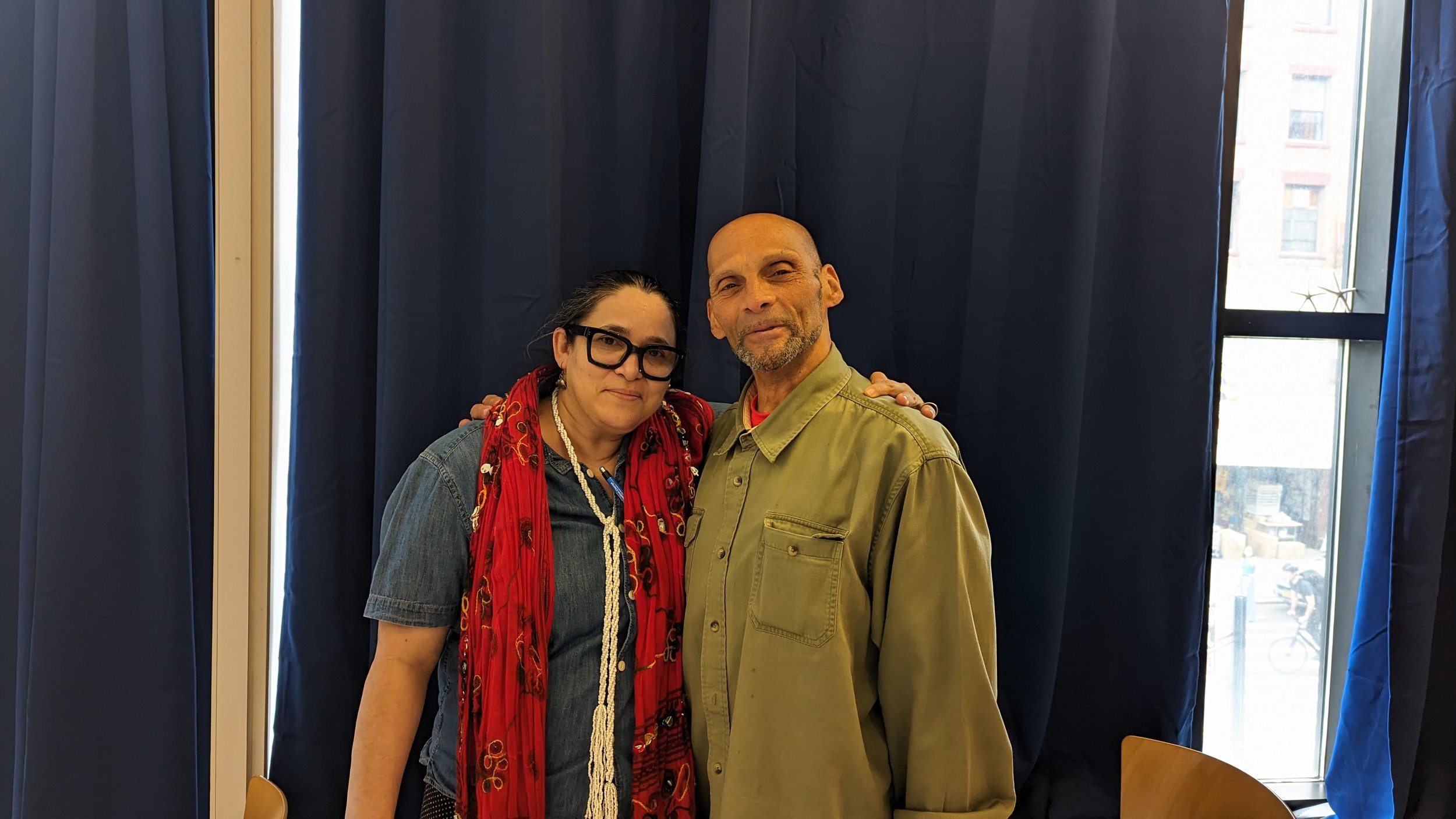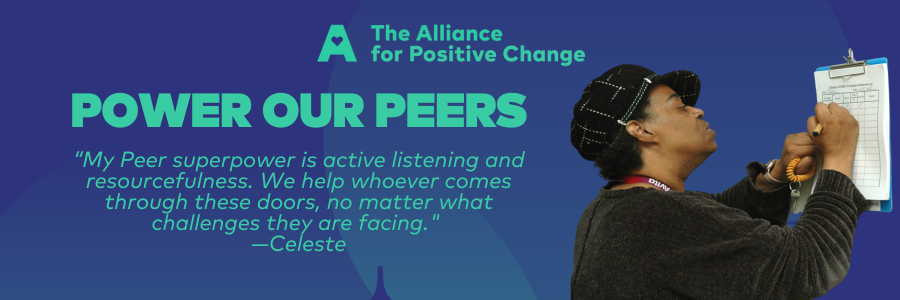Can you tell us a little bit about yourself?
My name is Enrique L. I’m 68, originally from Puerto Rico, although I came to New York 35 years ago.
What do you do for fun?
I like to clean and organize things around the house. And I like to cook traditional Puerto Rican food like arroz con gandules.
How did you come to find Alliance for Positive Change?
When I was released from prison in December, I was connected with Eugene, from Alliance’s Corrections Health Initiative. He helped me—I was incarcerated for a long time, so I’m not used to smart phones, and other stuff most people are.
We don’t have to get into the subject of your incarceration, unless you want to talk about it?
We can talk about it. I like to share my story. Maybe it can help someone else. I was addicted to heroin and crack. Getting high was the most important thing in my life, and, when I was living on the street, I killed someone for drugs. I was in prison for 27 years.
How did you come to start taking heroin and crack?
After I came to New York from Puerto Rico with my wife, about 35 years ago. I never did drugs before then, but I started hanging out other Nuyorican guys who were injecting heroin and kept pressuring me to try it. I thought they were my friends but when I said “no” they kept saying “just do it” and I finally said yes.
What is your current drug use?
None. I haven’t at all in like 10 years, even though drugs were around in prison. When I was using drugs, I would get angry and fight with my wife and my boss. I’m not usually like that, you can see, I’m a pretty quiet, calm guy. I didn’t feel like myself. I lost my wife and kids, my job, and was sleeping on the street, living only for heroin.
What was the biggest thing for your drug abstinence?
In prison, they offered prescription Suboxone (a prescribed Medication-assisted therapy made to reduce withdrawal cravings for opioids) and I took it because I didn’t want to feel that way again. I wanted to stop using. Drugs were around in prison, but I didn’t use much, and not at all in the last 10 years. I wanted to feel like myself again.
As soon as I got released and found Alliance, I got a Suboxone treatment plan and I can pick it up every few weeks. It’s been easy.
Enrique with his Alliance case worker, Ana
Besides Suboxone, what else is an important part of your recovery?
Groups. I like to talk with the other people here, even the ones who are using. Just hearing their stories helps me. And my counselor, Ana. She’s great. We speak in Spanish, Spanglish, and English, whatever.
I get supportive services because I have HIV. I got it from sharing needles when I was living on the street. I’m fine sharing that with anyone, I don’t have anything to hide.
Now that you’re feeling like Suboxone is working, what are some of your goals?
My kids. I was incarcerated most of their lives, but they see I'm not on drugs and we reconnected. I got to meet my grandson, which was—it was really special.
I can live on a fixed income and I’m about to move into my own apartment. With some privacy, I’m looking forward to having my children stay with me sometimes. I’m happy.








